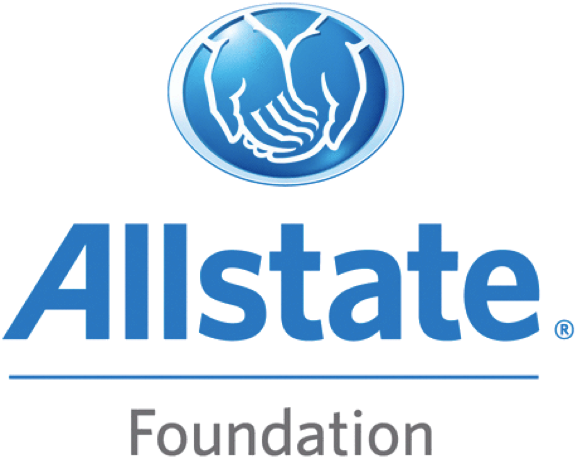Percentage of Teens Who Think They Will be Financially Dependent on Parents Until age 25-27 More Than Doubles, New Survey Finds
Junior Achievement USA® and The Allstate Foundation survey indicates teens are more optimistic about financial futures, yet concerned about paying for higher education

Audio File
April 2, 2013 /3BL Media/ - Junior Achievement USA® (JA) and The Allstate Foundation's 2013 Teens and Personal Finance Poll shows that teenagers are more optimistic about their financial futures, with a 20 percent increase in teens believing they will be financially better off than their parents. However, part of their financial security comes from depending on parents until a later age.
The survey found that 25 percent of teens think they will be age 25-27 before becoming financially independent from their parents, up from 12 percent in 2011. Concurrently, parents are also expecting their children to be in their mid-20s by the time they are financially independent1, as the economy, availability of jobs and societal norms now indicate a longer dependence on parents.
"It is interesting to see this shift in teens thinking they will remain financially dependent on parents, while building a better future for themselves," said Jack E. Kosakowski, president and chief executive officer of Junior Achievement USA. "From our findings, we can infer that teens expect to live with their parents longer because 23 percent are unsure about their ability to budget and nearly 20 percent express similar feelings about the use of credit cards. Additionally, 34 percent of teens express a lack of confidence in their ability to invest their money. The good news is that resources are available, but now is the time to implement steps to help today's teens secure independent financial futures."
Since 2005, Junior Achievement and The Allstate Foundation have partnered to help students take the valuable information learned about personal finance in the classroom and apply it in their lives after graduation. The Junior Achievement JA Economics for Success® program, created in partnership with The Allstate Foundation, has helped more than 1.2 million students set personal goals about money and make wise financial choices. The program also helps empower students to develop, plan, and set goals to help protect them from unexpected financial pitfalls.
"Parents continue to be the No.1 influence on teens when it comes to money, so helping their teens set financial goals and take steps to meet them should pay off financially for both teens and their parents," said Don Civgin, president and chief executive officer, Allstate Financial. "One goal many teens have is to go to college, yet nearly 30 percent of teens say they haven't discussed paying for higher education with their parents and only nine percent admit to saving for college. There is a tremendous opportunity for family conversation on this topic."
Other key findings from the survey include:
- Of the 33 percent of teens who say they do not use a budget, 42 percent are "not interested" and more than a quarter (26 percent) think "budgets are for adults."
- More than half of teens (52 percent) think students are borrowing too much to pay for college, yet only nine percent report they are currently saving money for college. Nearly 30 percent have not talked with their parents about paying for higher education.
- The majority of teens (76 percent) still report the best time to learn about money management is in kindergarten through high school, but only 29 percent reported programs currently in place.
An executive summary of the 2013 Junior Achievement USA/Allstate Foundation Teens and Personal Finance Survey is available at www.ja.org.
Methodology
This report presents the findings of a study conducted Feb. 5-15, 2013, using the KnowledgePanel to interview 1,025 teens ages 14-18 years old. The survey's margin of error is +/- 3 percent at the 95 percent confidence level.
About Junior Achievement USA® (JA)
Junior Achievement is the world's largest organization dedicated to giving young people the knowledge and skills they need to own their economic success, plan for their future, and make smart academic and economic choices. JA programs are delivered by corporate and community volunteers, and provide relevant, hands-on experiences that give students from kindergarten through high school knowledge and skills in financial literacy, work readiness and entrepreneurship. Today, JA reaches 4.2 million students per year in more than 120 markets across the United States, with an additional 5.8 million students served by operations in 120 other countries worldwide. Visit www.ja.org for more information.
About The Allstate Foundation
Established in 1952, The Allstate Foundation is an independent, charitable organization made possible by subsidiaries of The Allstate Corporation. Through partnerships with nonprofit organizations across the country, The Allstate Foundation brings the relationships, reputation and resources of Allstate to support innovative and lasting solutions that enhance people's well-being and prosperity. With a focus on teen safe driving and building financial independence for domestic violence survivors, The Allstate Foundation also promotes safe and vital communities; tolerance, inclusion, and diversity; and economic empowerment. For more information, visit www.allstatefoundation.org.

